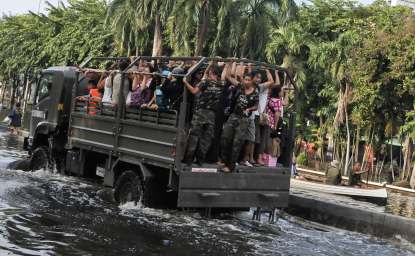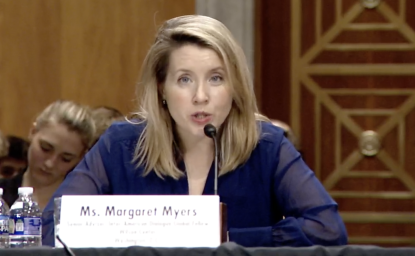The Resistance in South Vietnam following the “Geneva Convention”


Lutz Baehr, "The Resistance in South Vietnam following the 'Geneva Convention,'" review of Lịch sử Nam bộ kháng chiến (History of the Southern Resistance), edited by Hội Đồng Chỉ Đạo Biên Soạn Lịch Sử Nam Bộ Kháng Chiến, Cold War International History Project, October 2014.
The subject of this symposium, “The Resistance in South Vietnam,” is presented and discussed in the context of the recently published documentation Lịch sử Nam bộ kháng chiến.[1] Hereby special attention is attached to the historic period of 1954 to 1975, which in the western world is normally associated with the “Vietnam War.” This symposium offers foreign historians and experts on the “Vietnam War” a particular opportunity to inform themselves on aspects and views of this particular historic period from the perspective of the resistance in South Vietnam, a perspective which is internationally not very well known, often blended out in publications, particularly those in the western world. On the same notion the dialogue with foreign historians and experts on the “Vietnam War” may allow to add thoughts and views to the documentation on the subject matter at this stage of its preparation.
In addressing the documentation on the resistance in South Vietnam during this particular historic phase at this colloquium, it may be of interest to the participants of this symposium to note that this documentation has its own history, which also has a personal reminiscence for me.
This history goes back to the beginning of 1990, when I headed as a Director of the then United Nations Centre for Science and Technology for Development (UNCSTD) a small delegation of the United Nations to Hanoi, in order to initiate a scientific cooperation between the United Nations and Vietnam.
There I met with General Nguyen Vo Giap and other representatives of the Vietnamese Government. I was particularly impressed by meeting with the then Vice-President of Vietnam, the lawyer Nguyen Huu Tho, the former and only President of the National Front of Liberation (NLF).
Following this meeting I established a close relationship with Nguyen Huu Tho. Hereby I benefited from the advantage that Nguyen Huu Tho was a relative of my Vietnamese wife, whom I had married in South Vietnam in 1966. His oldest son Nguyen Huu Chau, who had followed his father to the forests of Tay Ninh, became a close friend, apart from being of a new family member.
In talking with Nguyen Huu Tho on my frequents visits to Vietnam, I normally listened to his extensive explanations on the resistance in South Vietnam, addressing the organization of the National Liberation Front (NLF), its leadership approach, its goals, its military and diplomatic intervention against the foreign military presence in South Vietnam, its position to stand-up against the economic dependence in South Vietnam, to address the need for the transformation of the society in South Vietnam, its overriding pursuit of the reunification of Vietnam.
I strongly felt that this information on the resistance in South Vietnam, which Nguyen Huu Tho then shared with me, should also be published for and made available to the outside world, as the events of the Vietnam War had been virtually followed throughout the entire world, hereby also influenced the political reasoning of especially my generation. I also reasoned that in the United States of America alone thousands of publications on the Vietnam War existed, however, the vast majority of these publications did not make any or only little reference to the resistance in South Vietnam, its representation by the NFL, the support, which the NFL enjoyed by many Vietnamese in South Vietnam, partly also through a major network of infiltration.
Whereas Nguyen Huu Tho was in the beginning of this dialogue reluctant to engage himself in such publication. Later, after he had resigned from his position as Vice-President of Vietnam, he opened up for such publication project. Finally he assigned Tran Bach Dang to initiate such publication, which in some ways paved the way for the later option to prepare a documentation on the resistance in South Vietnam under Tran Bach Dang's leadership, respectively as he used to say: “as chef d'orchestre,” however, at the same time supervised by an independent committee of historians and academicians, specialized in the contemporary history of Vietnam.
Tran Bach Dang also felt that such documentation should not be prepared primarily for a foreign readership, but for the Vietnamese society and future generations, however, not excluding the dialogue with the international community of historians, specialized in the Vietnam War.
He also insisted that such documentation needed to be based on archives and reliable reports of witnesses on the NFL-side, on the systematic collection of relevant information on the events of the Vietnam War with focus on the role of the resistance in South Vietnam and from its own perspective.
Furthermore the documentation on the role of the resistance in South Vietnam was extended to the period, following the end of World War II in Asia until the Geneva Agreement in 1954. For the understanding of the Vietnam War and the role of the resistance in South Vietnam, as Tran Bach Dang felt, it was necessary to link both periods under the particular and respective conditions, under which the resistance (Viet Minh and NLF) operated in South Vietnam during both periods.
Prior to the death of Nguyen Huu Tho, he also published speeches of Nguyen Huu Tho as well as articles of high-ranking representatives of the Vietnamese Government and Party, paying tribute to this extra-ordinary political leader of Vietnam. As a lawyer and the President of the National Liberation Front he embodied both: the legitimate cause of the resistance and its legality, which, however, differed from the notion of the “legality” of the regime in South Vietnam, which lacked such legitimacy. In fact, according to the understanding of Nguyen Huu Tho, the notion of “legality” under the former South Vietnamese regime cemented the division of Vietnam, increased the economic and political dependency of South Vietnam on foreign interests in this region.
Unfortunately Tran Bach Dang's efforts in advancing the process in preparing the documentation came to an end, when he passed away in April 2007. Tragically also with him the personified resistance in South Vietnam, as Tran Bach Dang was perceived already during his life-time as a “walking monument of the resistance in South Vietnam.”
As a co-founder and Vice-President of the NFL he was succeeded by another co-founder and Vice-President in taking-up the lead role of Tran Bach Dang for the preparation of the documentation, i.e by nobody less than Vo Van Kiet, the former Prime Minister of Vietnam from 1986 to 1996.
Vo Van Kiet further advanced the preparation of this documentation and elevated its political significance. He was also instrumental to initiate this colloquium, to open it up to foreign historians and academicians, which privileged us non-Vietnamese to attend this colloquium.
Again another tragic loss occurred: the passing away of Vo Van Kiet, in July 2008. He and Tran Bach Dang will be missed at this colloquium. At the same time we should be grateful to Nguyen Trong Xuat, the Secretary General of the documentation, who took up the responsibility in finalizing the preparation of this colloquium in time, i.e. in terms of its substance and logistics.
In the light of the losses of these three extra-ordinary leaders of the resistance in South Vietnam, it is indicated to pay a special tribute to these three outstanding personalities and leaders of the resistance in South Vietnam, for whom the legitimate cause of the resistance was never put into question. Their names should also stand for the enormous sacrifices of the Vietnamese people in South- and North Vietnam during the period of resistance over a period of three decades.
In fact their leadership of the resistance in South Vietnam contributed enormously to the outcome of the Vietnam War, which ultimately resulted in the unification of Vietnam, the preservation of peace and almost for two decades a steady economic growth, a transformation of Vietnam in terms of socio-economic development, as we experience Vietnam today, more than 33 years after the ending of the Vietnam War. A development under its various aspects, from which the Vietnamese people benefit today, hopefully also future generations.
Click Here to Return to the Symposium on the History of Vietnam's Southern Resistance
[1] Hội Đồng Chỉ Đạo Biên Soạn Lịch Sử Nam Bộ Kháng Chiến, ed., Lịch sử Nam bộ kháng chiến (History of the Southern Resistance), 4 vols (Hà Nội: Nhà xuất bản Chính trị quốc gia, 2010).
Author

Cold War International History Project
The Cold War International History Project supports the full and prompt release of historical materials by governments on all sides of the Cold War. Read more


History and Public Policy Program
A leader in making key foreign policy records accessible and fostering informed scholarship, analysis, and discussion on international affairs, past and present. Read more

Explore More
Browse Insights & Analysis
Symposium on the History of Vietnam's Southern Resistance

Myanmar’s Junta and the 2026 Elections: A Fig Leaf for Legitimacy?

